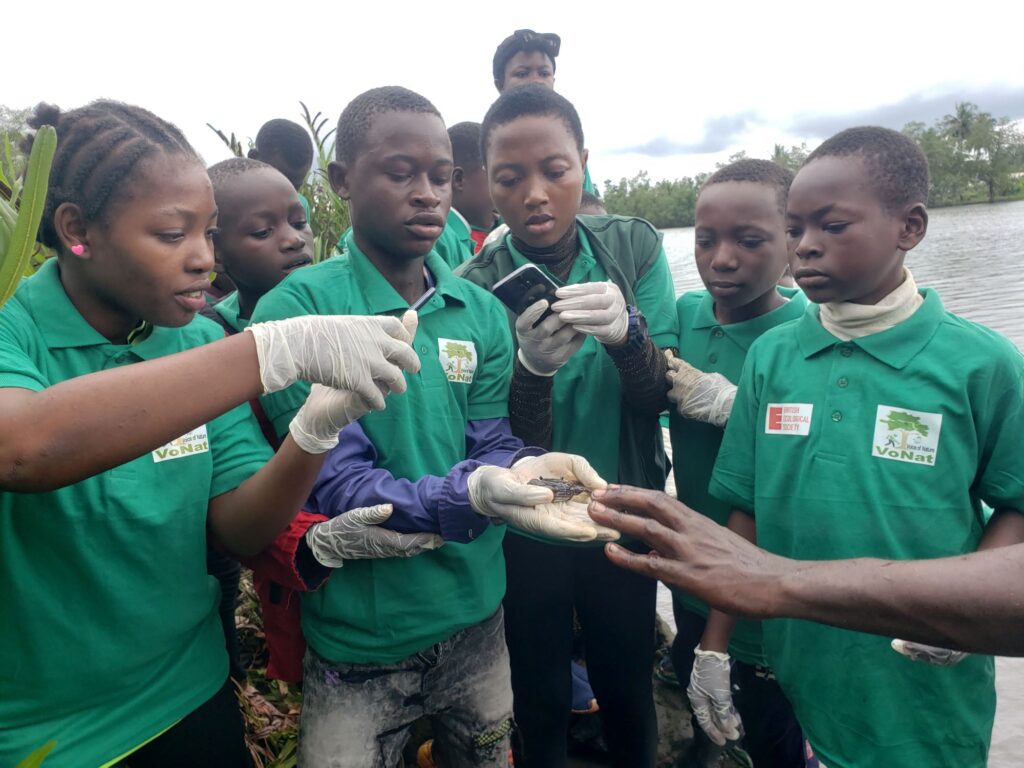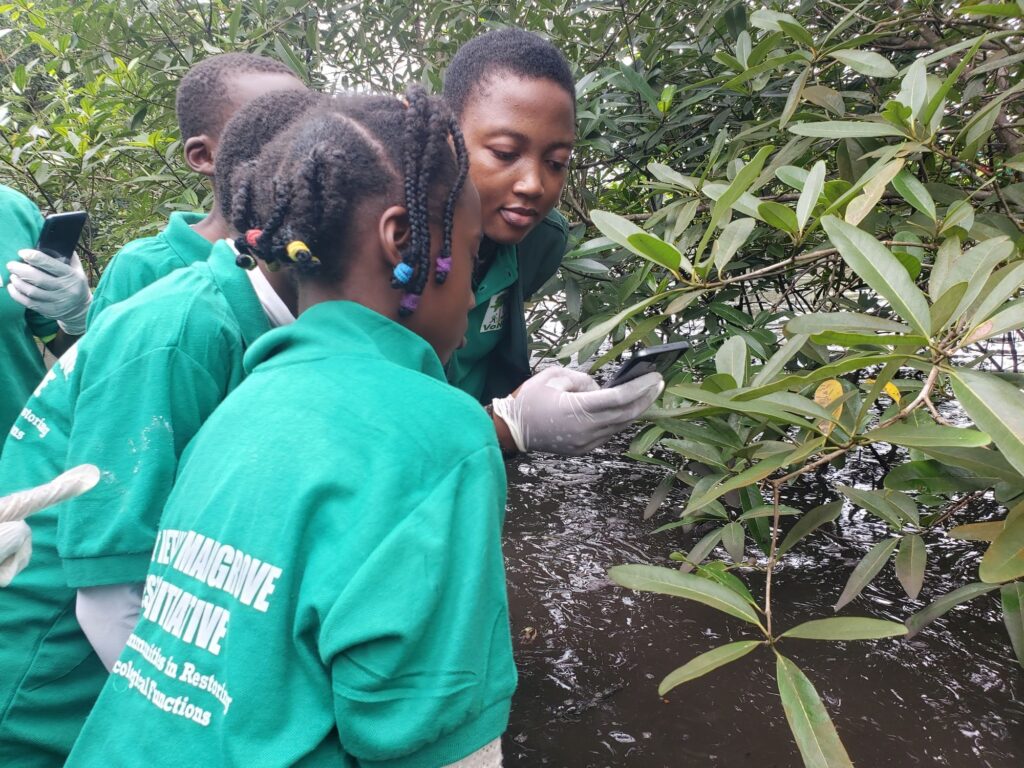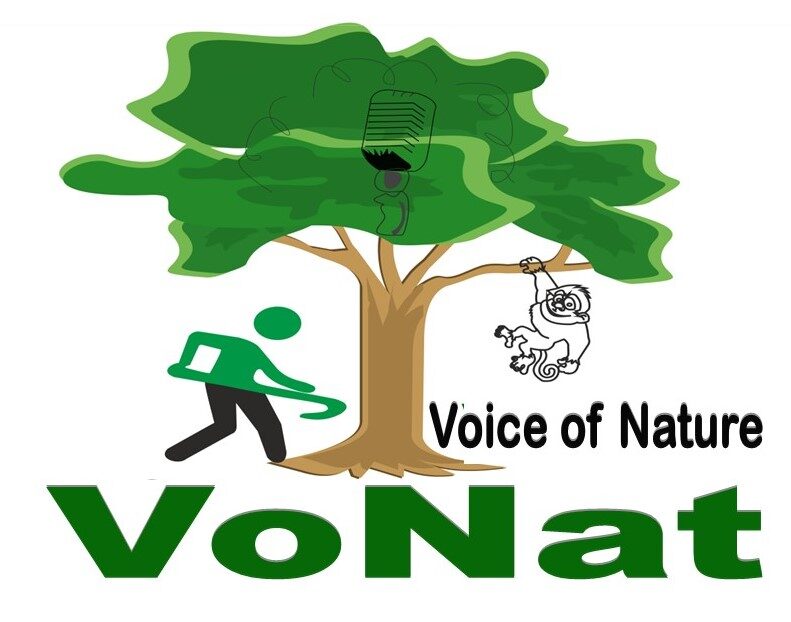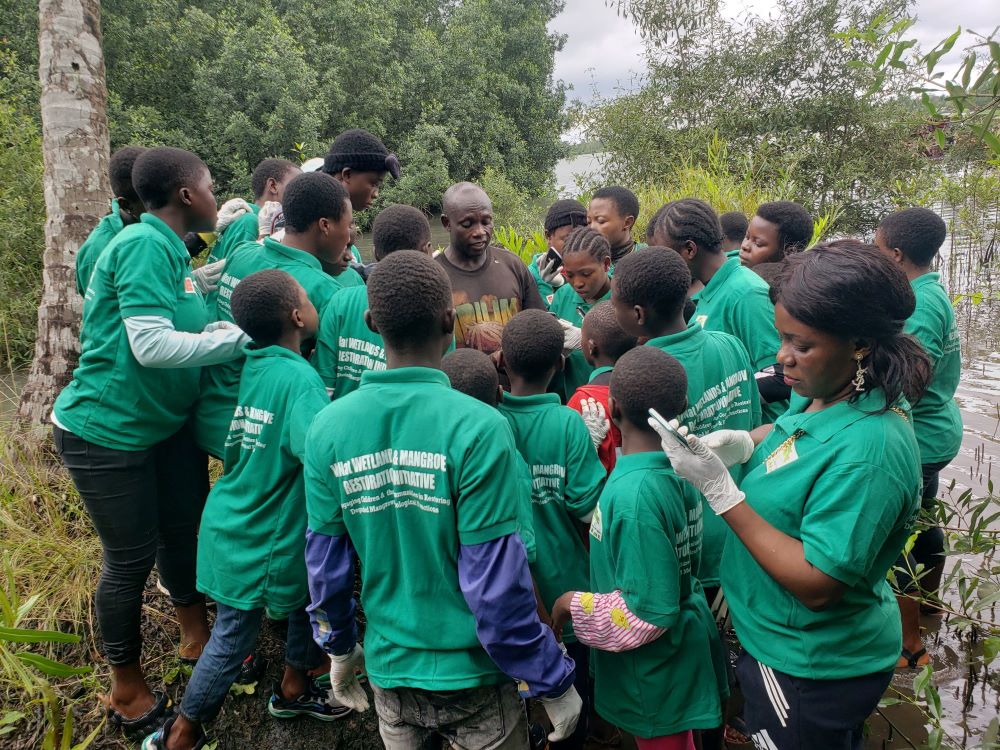Cameroon-based biodiversity conservation and sustainable Development Non-profit Organization, Voice of Nature (VoNat) has engaged some 30 kids and young adults in the Ecological Study of the Tiko Mangrove Estuary, South West Region of Cameroon. The Tiko Mangrove Estuary is wetland of international importance, according to Ramsar Convention criteria, undergoing wanton depletion for fuel wood, construction and smoking of fish.

The ecological study, August to September, 2023, aims at enhancing the understanding of the future leaders and policy makers of the biodiversity of Tiko mangrove ecosystem and its ecological importance, while inspiring them to take conservation actions. The youngsters received lessons about the ecology of the Tiko Mangrove Estuary and conservation importance, and an orientation session of ecological data collection techniques before heading to the Tiko mangrove for ecological study. The future conservation leaders moved from one beach to another recording vital ecological data about the mangrove ecosystem using mobile apps. Some of the data include but not limited to direct observation of species (dead and alive), feeding signs, dungs, threats, vocalization and others.
“I discovered different species like crabs, frogs, fish and other animals that I don’t know their names. I noticed that the harvesters were transporting the mangroves from Douala to the beach by boat because they have cut all of theirs,” one of the participating kids, Array Tracy, disclosed shortly after the ecological study trip.

Another kid taking part in the programme, Anyila Precious, noted “I have learnt about the different types of mangroves and biodiversity species found here. I discovered that the Tiko mangrove estuary has both red and white mangroves, which are known in our community as motanda. In fact, I have learnt a lot coming here today, and I will educate others in my community about mangrove conservation”.
The technical team of VoNat led the youngsters to identify and better understand some of the species they could not identify in the field using the i-Naturalist application. “The application helped me to understand some strange species that we discovered in the mangroves. In fact, I now understand how to identify strange species and their status using this application,” 14-year old Santio from Upper Costain community said shortly after a species identification and study session.

According to the Executive Director of Voice of Nature (VoNat), Ndimuh B. Shancho, “An understanding of the different biodiversity species in the Tiko Mangrove estuary and the threats the ecosystem is exposed to, will provide a palpable rationale for the conservation of the biodiversity hot spot”. The conservationist and climate activist believes that such an understanding will also instill fresh conservation zeal in the kids, and “Some may end up as wetlands ecologists and spend the rest of their lives advocating for the conservation of wetlands and the mangrove ecosystems in their communities, Cameroon and Africa.
Meantime, the 30 kids and young adults have translated the lessons learnt into media arts tools that are being used for community-wide education and sensitization campaign for the conservation of Tiko mangroves. This programme is part of VoNat’s Wetlands & Mangrove Restoration Initiative, carried out with funds from British Ecological Society.

